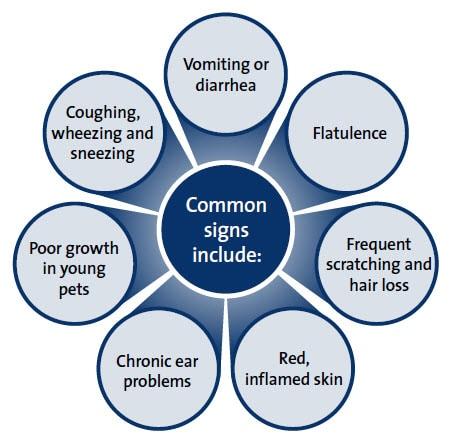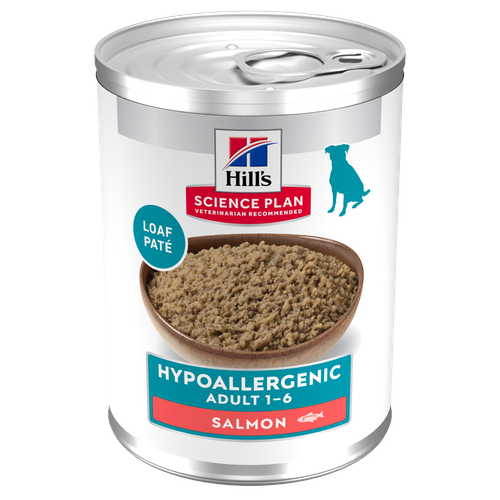
-
Find the right food for your petTake this quiz to see which food may be the best for your furry friend.Find the right food for your petTake this quiz to see which food may be the best for your furry friend.Featured products
 Puppy Food
Puppy FoodHill's Science Plan Puppy Multipack Wet Dog Food with Chicken & Beef are complete premium pet foods for growing puppies from weaning until 1 year old and for pregnant and nursing dogs. Your puppy will love these deliciously smooth and savoury minced loaves, formulated for balanced nutrition and overall health.
Shop Now Mature Adult Dog Food
Mature Adult Dog FoodHill's Science Plan Mature Adult Multipack Wet Dog Food with Chicken & Beef are complete premium pet foods for mature adult dogs from 7 years. Your dog will love these deliciously smooth and savoury minced loaves, formulated to deliver the appropriate amount of energy to support the needs of adult dogs.
Shop Now Adult Wet Dog Food with Beef
Adult Wet Dog Food with BeefHill's Science Plan Adult Multipack Wet Dog Food with Chicken, Beef & Turkey are complete premium pet foods for adult dogs from 1 year. Your dog will love these deliciously smooth and savoury minced loaves, formulated for balanced nutrition and overall health.
Shop NowFeatured products Adult Multipack Wet Cat Food with Beef, Ocean Fish & Chicken
Adult Multipack Wet Cat Food with Beef, Ocean Fish & ChickenTender chunks in gravy for cats, with high-quality protein to maintain lean muscle. With vitamin E and omega-3s & -6s for healthy skin and balanced minerals to support healthy vital organs.
Shop Now Mature Adult Wet Cat Food with Chicken
Mature Adult Wet Cat Food with Chicken
Tender chicken chunks in gravy for mature adult cats. Made with easy-to-digest ingredients, high-quality protein for lean muscle maintenance and antioxidant vitamins C+E for optimal health.
Shop Now Light Adult Multipack Wet Cat Food with Chicken & Ocean Fish
Light Adult Multipack Wet Cat Food with Chicken & Ocean FishTender chicken chunks in gravy for cats, with L-carnitine and fewer calories for ideal weight management. Packed with high-quality protein, omega-6s, and vitamin E for shiny fur and healthy skin.
Shop Now -
Dog
- Dog Tips & Articles
-
Health Category
- Weight
- Food & Environmental Sensitivities
- Urinary
- Digestive
- Joint
- Kidney
-
Life Stage
- Puppy Nutrition
- Adult Nutrition
- Senior Nutrition
Cat- Cat Tips & Articles
-
Health Category
- Weight
- Skin & Food Sensitivities
- Urinary
- Digestive
- Kidney
-
Life Stage
- Kitten Nutrition
- Adult Nutrition
Featured articles The Incredible Science Behind Your Pet's Microbiome
The Incredible Science Behind Your Pet's MicrobiomeLearn what your pet's microbiome is, how it contributes to your pet's gut and overall health, and why nutrition is important in maintaining healthy microbiomes.
Read More The Right Diet For Your Pet
The Right Diet For Your PetIn people, the right diet is very important. If you are eating the wrong way for your metabolism, activity level, age and lifestyle you could end up with health issues.
Read More Show some love with wet foods: a great choice for pets with health issues
Show some love with wet foods: a great choice for pets with health issuesShow some love with wet foods: a great choice for pets with health issues.
Read More -


Allergies aren't fun for anyone, but especially not for your dog, who can't tell you what's wrong. Food allergies and food intolerances can be a real pain for you and your dog, and they can be tricky to get to the bottom of. An abnormal response to a certain ingredient in food is usually referred to by vets as an ‘adverse food reaction’, or AFR. There are two main types of adverse food reactions: allergies, where the immune system is involved, and food intolerances, which occur without an immune component. Allergies tend to occur in reaction to protein components of the food, such as beef or chicken.
What causes adverse food reactions such as allergies?
The most common causes of food allergies/intolerance in dogs are protein sources, such as beef, chicken, dairy products and wheat. It may take months or years before your dog develops an allergic response to a particular food. However, once this has happened, there will almost always be an ongoing negative reaction to that food.
Adverse food reactions (AFRs) can occur at any age and usually last a lifetime. Some dog breeds appear more likely to develop AFRs, including West Highland white terriers, cocker spaniels and Irish setters.
You don’t need to get hung up on exactly what type of AFR your dog has, since the process for diagnosis and treatment are the same.
What are the signs of food allergies and intolerances in dogs?
The most common signs of an AFR are digestive upsets, skin irritation, or a combination of the two. Skin lesions on dogs with AFRs are frequently located on the face, feet, groin and ears.
Food allergies often mimic other skin diseases, and many dogs have other allergies, such as flea-bite sensitivity and atopy, at the same time. Atopy is an allergy to things in the environment such as pollen, dust mites and grasses. Dogs with chronic or recurring external ear inflammation and infections should also be evaluated for food allergies.
If your dog has an adverse food reaction, you may notice some or all of the following signs:

Vomiting or diarrhoea
Poor coat condition
Flatulence
Frequent scratching or hair loss
Red, inflamed skin
Chronic ear problems
Poor growth in young dogs
IMPORTANT: Some signs of AFRs are similar to those of other serious conditions, so consult your veterinarian if you notice any of these signs.


Tasty Tips
How are food allergies diagnosed and treated?
The way your vet will approach diagnosing your dog’s AFR will depend on the clinical signs. Because both skin and gastrointestinal signs can mimic lots of other diseases, your vet may need to do skin scrapes and swabs and skin allergy testing. Ruling other things out is as important as ruling food allergy or intolerance in. With skin symptoms particularly, this can be a lengthy process, so be patient with your vet.
The main goal in diagnosing and managing food allergies or intolerances is to find and avoid the food ingredient responsible. The most practical and accurate method is a food elimination trial. There are two common approaches to this:
Hydrolysed diets. These are diets in which the protein source has been hydrolysed. This means that it has been broken into tiny parts that are too small for the body’s immune system to recognise as proteins. The carbohydrate sources will usually have been purified to take out the protein components and just leave the carbohydrate.
Novel protein diet. These diets are, as they sound, aimed at feeding your dog a protein that they have never been exposed to before, such as venison or duck.
Hydrolysed diets tend to be preferred for two main reasons. Firstly, in theory, you can feed these foods to any dog with any food allergy. Secondly, many people do not know exactly what proteins their dog has been exposed to, so finding a novel one may be a little uncertain.
Doing a food elimination trial
Transition to the new food. Your vet will ask you to gradually change your dog’s food over 5-7 days. You can do this by replacing a ⅕ of your dog’s old food the first day and then increasing the proportion of new food each day until they are eating only that food.
Cut out ALL extras. It’s essential during the trial that your dog only eats the therapeutic diet your vet has recommended. Treats, extras and chews should all be removed. Your vet may be able to recommend hypoallergenic treats or give you a recipe to make baked treats at home from the special diet.
Stay the course! It’s very important that you follow your vet’s instructions for how long the trial needs to be. For gut symptoms like vomiting and diarrhoea, this may only be 3-4 weeks, but for skin symptoms, you will need to stick with it for around 12 weeks to give the skin cycle time to show improvement.
Never try to simply remove ingredients from your dog's diet because you could easily end up malnourishing them.
What next?
When you get to the end of the elimination trial, you should have your answer as to whether your dog has an AFR or not. If not, then your vet will continue their work-up. If your dog is miraculously better, then you can both breathe a sigh of relief! What you do next depends on whether you want to know exactly what your dog is reacting to. If so, you can challenge your dog by adding a single protein source to the therapeutic diet for a couple of weeks. For example, add some cooked chicken breast every day and see what happens, then try beef or wheat, etc.
Many pet parents are so relieved that their dog feels better that they choose to simply stay on the special food. It keeps things simple!
While food allergies can be tricky to diagnose and cause a real headache (or tummy ache) for you and your dog, once they have been diagnosed, most dogs can go on to have normal lives by simply avoiding the offending food.
If your dog doesn’t respond to a food elimination trial, your vet may continue the process of ruling other skin and allergy issues in or out. This can take a while, so be patient and work with your vet to get to the bottom of things. Of course, your dog may have more than one type of allergy and may respond partially to a food trial but need more care for a different issue.
FAQs
What are the first signs of food allergies in dogs?
Some dogs get itchy skin and ears, while others have gastrointestinal symptoms like vomiting and diarrhoea – and some unlucky individuals get both!How do vets diagnose food allergies and intolerances?
Ultimately by doing a food elimination trial. Your vet may do other tests as well to rule out other diseases, depending on your dog’s symptoms.What’s the best diet for dogs with food allergies?
This will depend on what your dog is allergic to. Hydrolysed diets can be fed to any dog with an adverse food reaction. Your vet will advise you about your individual dog.How long does it take to see an improvement on a hypoallergenic diet?
Gastrointestinal symptoms usually resolve in 3-4 weeks, sometimes sooner. Skin symptoms can take up to 12 weeks, as the skin is much slower than the gut to heal and recover.Can you blood test for food allergies?
While there are blood tests available for food allergies, these are not currently reliable and are best avoided.
Reviewed by Dr. Hein Meyer, DVM, PhD, Dipl-ECVIM-CA and Dr. Emma Milne BVSc FRCVS.


One of our staff authors prepared this article for you
Related products

Hill's Science Plan Puppy Multipack Wet Dog Food with Chicken & Beef are complete premium pet foods for growing puppies from weaning until 1 year old and for pregnant and nursing dogs. Your puppy will love these deliciously smooth and savoury minced loaves, formulated for balanced nutrition and overall health.

Hill's Science Plan Hypoallergenic Adult Wet Dog Food with Salmon is a complete premium pet food for all adult dogs from 1 year. This savoury tinned loaf is specially formulated for dogs with delicate skin and stomachs. It features a single novel animal protein source and is grain-free.

Hill's Science Plan Adult Multipack Wet Dog Food with Chicken, Beef & Turkey are complete premium pet foods for adult dogs from 1 year. Your dog will love these deliciously smooth and savoury minced loaves, formulated for balanced nutrition and overall health.

Hill's Science Plan Mature Adult Multipack Wet Dog Food with Chicken & Beef are complete premium pet foods for mature adult dogs from 7 years. Your dog will love these deliciously smooth and savoury minced loaves, formulated to deliver the appropriate amount of energy to support the needs of adult dogs.
Related articles

Many human foods are dangerous to dogs. Read about 5 of the worst toxic food offenders that can kill your dog - and how much it takes to hurt them.

Learn about the potential health risks of a raw diet for dogs and why they aren't the best option for your pup or you.

Learn effective tips for feeding a dog that's a picky eater and ensure proper nutrition for a finicky eater. Discover tips for pet parents at Hill's Pet UK.

How, when and what to feed your new puppy is an important decision, learn more about the things to consider for feeding your puppy.

Put your dog on a diet without them knowing
Our low calorie formula helps you control your dog's weight. It's packed with high-quality protein for building lean muscles, and made with purposeful ingredients for a flavourful, nutritious meal. Clinically proven antioxidants, Vitamin C+E, help promote a healthy immune system.
Put your dog on a diet without them knowing
Our low calorie formula helps you control your dog's weight. It's packed with high-quality protein for building lean muscles, and made with purposeful ingredients for a flavourful, nutritious meal. Clinically proven antioxidants, Vitamin C+E, help promote a healthy immune system.

